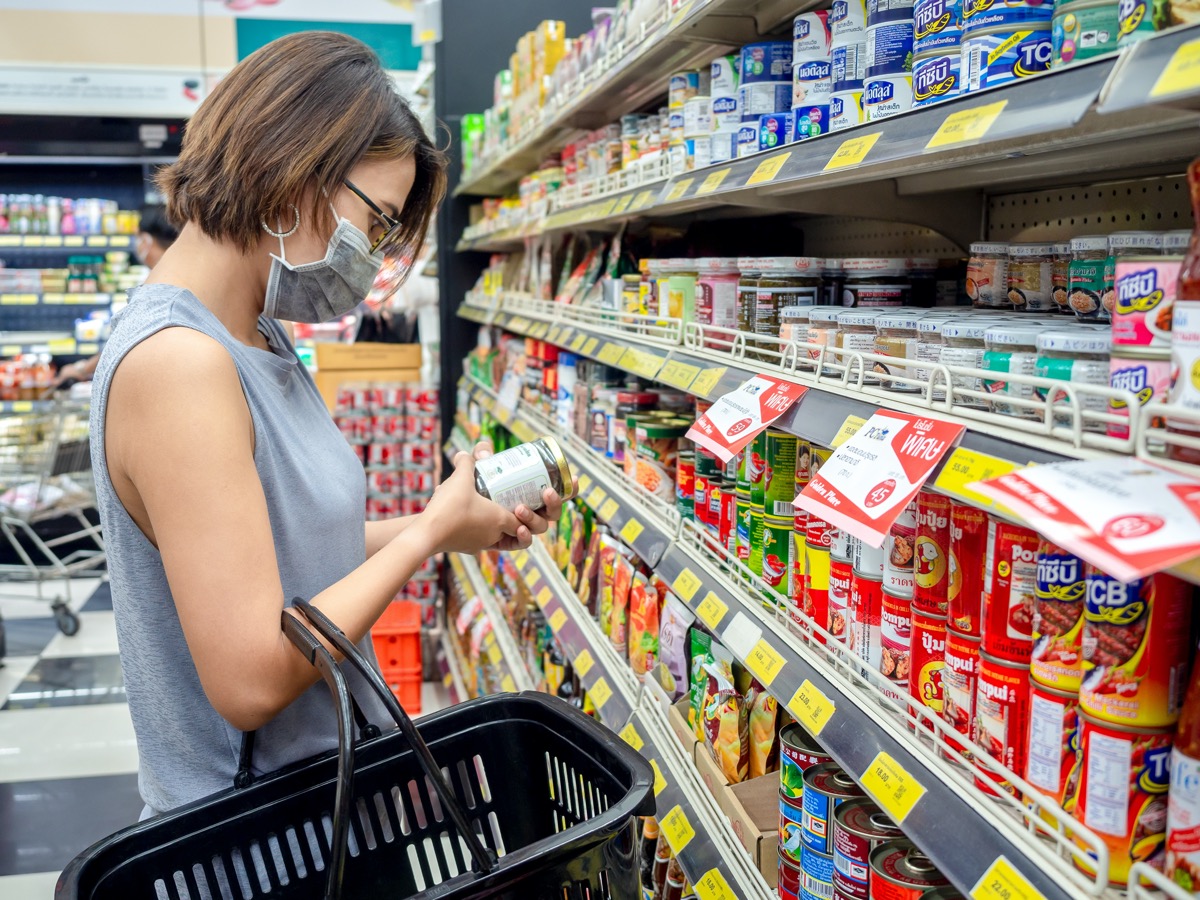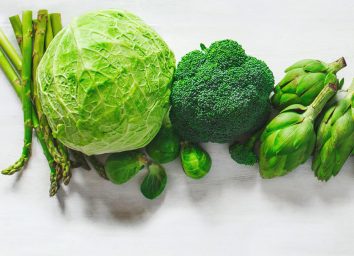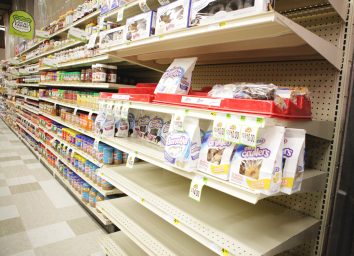The #1 Thing Grocery Stores Don’t Want You to Do

Navigating the COVID-19 pandemic has forced many of us to make some strange compromises. Many of us have had to cut out routines that are usually healthy for us (going to the gym, meeting up with friends) to avoid potentially exposing ourselves to a much more dangerous health risk. Now, you can add to the list of “good ideas that are not so good during a pandemic” one more habit that you probably practice in good conscience: checking the product labels of items when you’re at the grocery store.
Why would reading the labels of food you’re putting in your body ever be a bad idea? Eat This, Not That! preaches to do so all the time. But, at the current moment, it poses a risk to you and others because you don’t know who else has touched that can, bottle, or bar—and it prolongs the amount of time you’re spending in the grocery store.
“It’s impossible to ensure that everyone is washing their hands, applying hand sanitizer, and wearing a mask,” says Gail Trauco R.N., BSN-OCN, patient advocate and CEO/founder of Medical Bill 911. “Retail personnel do not clean each and every shelf item daily. Shelves, glass doors, shopping charts, and baskets are disinfected daily—not all the products in the store.” (Related: This One Mistake While Grocery Shopping Can Skyrocket Your Coronavirus Risk.)
Of course, picking up the virus by touching objects is less of a concern than person-to-person contact. The CDC has recently updated its guidance on how COVID-19 spreads, emphasizing that it is “spread mainly from person-to-person” through respiratory droplets “produced when an infected person coughs, sneezes, or talks.”
More time spent reviewing product labels in the store means more chances you’ll expose yourself to this kind of spread (and/or potentially expose others). Plus, it increases the opportunity for other shoppers to have to squeeze by you, getting closer than the six-foot distance recommended by the CDC and other public health organizations.
That doesn’t mean you should not read the labels of food products at all.
“People rely on reading these labels for a variety of reasons,” says Abdil Baholda, clinical lead and pharmacist for Prescription Doctor telemedicine service. “There are people with irritable bowel disorders—they can’t just hope for the best without it possibly having a nasty side effect. You also must consider people recovering from eating disorders, who may rely on reading these labels to stop rebounding.”
For people with these conditions or any number of other allergies or dietary restrictions, reading food labels is essential. But, that does not mean they must wait to read them once they get to the grocery store.
“Doing online research about a product and its ingredients can greatly help you to make informed food choices,” says Dr. Rashmi Byakodi, a health and wellness writer with Best for Nutrition. “These labels carry a lot of information about food safety and nutrition. Most importantly when you plan your grocery well before visiting the store, it reduces your time spent in the shop and possible exposure to infection.”
She adds that online research also helps you to compare the products and choose the one best suitable for your needs.
“When you have a perfectly prepared list, you are less confused about buying the products,” says Dr. Byakodi. “You will pick the right product without the need to touch them all. This also reduces the risk of spreading any infection.” (Related: How to Write an Effective Grocery Shopping List.)
On top of all these reasons, getting into the habit of reviewing product labels and deciding what to pick up before you go to the store actually will offer health benefits in the long run.
“One of the best habits to work towards is reading nutrition labels—this helps us to have a better sense of what we’re actually eating (ingredients and nutrients),” says Daniel Rosen MD, bariatric surgeon, who runs covidtestingnyc.com and serves as a concierge COVID-19 medical adviser. “It’s best to do your reading at home, instead of in the store, though. As shoppers, we can easily be swayed by shiny packages, colorful marketing, and eye-catching (non-regulated) word choices such as ‘natural.’ Just like shopping while hungry is not advised, shopping unprepared can lead to just as many poor food choices.”
For more safe grocery shopping tips, make sure to sign up for our newsletter, and avoid this one shopping mistake many people make before even entering the store.








